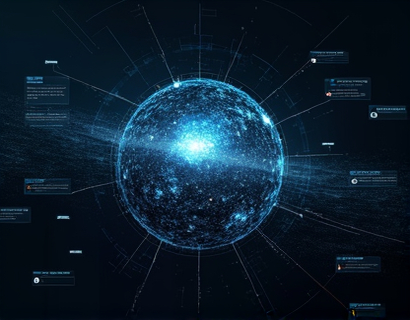AI-Powered Calculus Learning: Specialized Insights and Child-Friendly Access for Students and Educators
In the rapidly evolving landscape of education, artificial intelligence (AI) has emerged as a transformative force, particularly in the realm of mathematics. Among the various branches of mathematics, calculus stands out as a critical area of study that poses unique challenges for students. The introduction of AI-powered platforms designed specifically for calculus learning offers specialized insights and a child-friendly interface, making it easier for students and educators to navigate this complex subject. This article explores the benefits of AI in calculus education, the features of innovative chat platforms, and how these tools can enhance learning experiences for students and educators alike.
The Importance of Calculus in Education
Calculus is often regarded as a cornerstone of higher mathematics and is essential for various fields, including engineering, physics, economics, and computer science. Understanding calculus concepts such as limits, derivatives, and integrals is crucial for students who aspire to pursue careers in these disciplines. However, many students find calculus challenging due to its abstract nature and the level of mathematical rigor required. This is where AI-powered learning tools can play a pivotal role in bridging the gap between students and their understanding of calculus.
How AI Enhances Calculus Learning
AI technology can significantly enhance the learning experience by providing personalized support, instant feedback, and access to a wealth of resources. Here are some key ways AI contributes to calculus education:
Personalized Learning Paths
AI algorithms can analyze a student's performance and learning style, allowing the platform to create customized learning paths. This means that students can focus on areas where they struggle while advancing through topics they grasp more easily.
Instant Feedback and Assistance
AI chat interfaces can provide immediate feedback on students' questions and problems. This instant support helps students correct mistakes in real-time, reinforcing their understanding and boosting their confidence.
Access to Specialized Insights
AI platforms can offer specialized insights into calculus concepts, industry applications, and real-world examples. This contextual knowledge helps students see the relevance of calculus in various fields, making the subject more engaging.
Safe and Child-Friendly Environment
For younger learners, a child-friendly interface ensures that the content is appropriate and safe. AI platforms can filter out complex jargon and present information in an accessible manner, making calculus less intimidating for students.
Features of AI-Powered Calculus Learning Platforms
Innovative AI chat platforms designed for calculus learning come equipped with a variety of features that cater to the needs of students and educators. Here are some notable features:
Interactive Chat Interface
The chat interface allows users to ask questions and receive answers in a conversational format. This interactive approach makes learning more engaging and less formal, encouraging students to explore calculus concepts freely.
Content Verification
Ensuring the accuracy of information is crucial in education. AI platforms can verify content against trusted sources, providing students with reliable and accurate information about calculus topics.
Visual Aids and Examples
Many AI platforms incorporate visual aids such as graphs, charts, and animations to illustrate calculus concepts. These visual representations can help students better understand abstract ideas and see the connections between different topics.
Resource Library
A comprehensive resource library containing tutorials, practice problems, and video lectures can enhance the learning experience. Students can access a variety of materials to reinforce their understanding of calculus.
Progress Tracking
AI platforms often include progress tracking features that allow students and educators to monitor learning outcomes. This data can help identify areas for improvement and celebrate achievements.
Engaging Young Learners in Calculus
Engaging young learners in calculus can be particularly challenging, as traditional teaching methods may not resonate with their interests and learning styles. AI-powered platforms can address this challenge by providing a more interactive and enjoyable learning experience. Here are some strategies to engage young learners:
Gamification
Incorporating game-like elements into calculus learning can make the subject more appealing to young students. AI platforms can offer quizzes, challenges, and rewards that motivate students to participate actively in their learning.
Real-World Applications
Connecting calculus concepts to real-world scenarios can help students understand the relevance of what they are learning. AI platforms can provide examples from various industries, showing how calculus is used in everyday life.
Collaborative Learning
Encouraging collaboration among students can enhance their learning experience. AI platforms can facilitate group discussions and collaborative problem-solving, allowing students to learn from one another.
Interactive Simulations
Using interactive simulations to demonstrate calculus concepts can make learning more dynamic. AI platforms can offer simulations that allow students to manipulate variables and observe the effects, deepening their understanding.
Supporting Educators with AI Tools
Educators play a vital role in guiding students through their calculus journey. AI-powered platforms can support teachers in various ways, enhancing their teaching effectiveness and providing valuable resources. Here are some benefits for educators:
Resource Availability
AI platforms can provide educators with a wealth of resources, including lesson plans, teaching materials, and assessment tools. This availability allows teachers to focus on delivering quality instruction rather than spending time on resource creation.
Professional Development
Many AI platforms offer professional development opportunities for educators, helping them stay updated on the latest teaching strategies and technologies. This ongoing training can enhance their ability to teach calculus effectively.
Data-Driven Insights
AI platforms can analyze student performance data, providing educators with insights into individual and group learning trends. This information can inform instructional decisions and help identify students who may need additional support.
Time Management
By automating administrative tasks such as grading and progress tracking, AI platforms can free up educators' time, allowing them to focus on teaching and engaging with students.
Challenges and Considerations
While AI-powered calculus learning platforms offer numerous benefits, there are also challenges and considerations to keep in mind. Addressing these challenges is essential for maximizing the effectiveness of AI in education:
Equity and Access
Ensuring that all students have access to AI-powered learning tools is crucial. Schools and educators must work to provide equitable access to technology, particularly for underserved communities.
Data Privacy
As with any technology that collects user data, privacy concerns must be addressed. AI platforms should prioritize data security and transparency, ensuring that students' information is protected.
Teacher Training
Educators need proper training to effectively integrate AI tools into their teaching practices. Professional development programs should focus on how to leverage AI for enhanced learning outcomes.
Balancing Technology and Traditional Methods
While AI can enhance learning, it should not replace traditional teaching methods entirely. A balanced approach that combines technology with effective pedagogy is essential for optimal learning.
The Future of AI in Calculus Education
The future of AI in calculus education looks promising, with ongoing advancements in technology and pedagogy. As AI continues to evolve, we can expect to see even more innovative features and capabilities in learning platforms. Here are some potential developments:
Enhanced Natural Language Processing
Improvements in natural language processing will allow AI platforms to understand and respond to student inquiries more effectively, making interactions even more intuitive.
Adaptive Learning Technologies
Future AI platforms may incorporate more advanced adaptive learning technologies that can dynamically adjust content and difficulty levels based on real-time student performance.
Integration with Augmented Reality (AR)
Integrating AR technology into AI-powered platforms could provide immersive learning experiences, allowing students to visualize calculus concepts in a three-dimensional space.
Global Collaboration
AI platforms may facilitate global collaboration among students, enabling them to work together on calculus problems and projects, fostering a sense of community and shared learning.
Conclusion
AI-powered calculus learning platforms represent a significant advancement in education, offering specialized insights and child-friendly access for students and educators. By leveraging the capabilities of AI, these platforms can provide personalized learning experiences, instant feedback, and a wealth of resources that enhance understanding and engagement in calculus. As we continue to explore the potential of AI in education, it is essential to address challenges such as equity, data privacy, and the need for teacher training. With the right approach, AI can transform calculus education, making it more accessible, engaging, and effective for students of all ages.









































